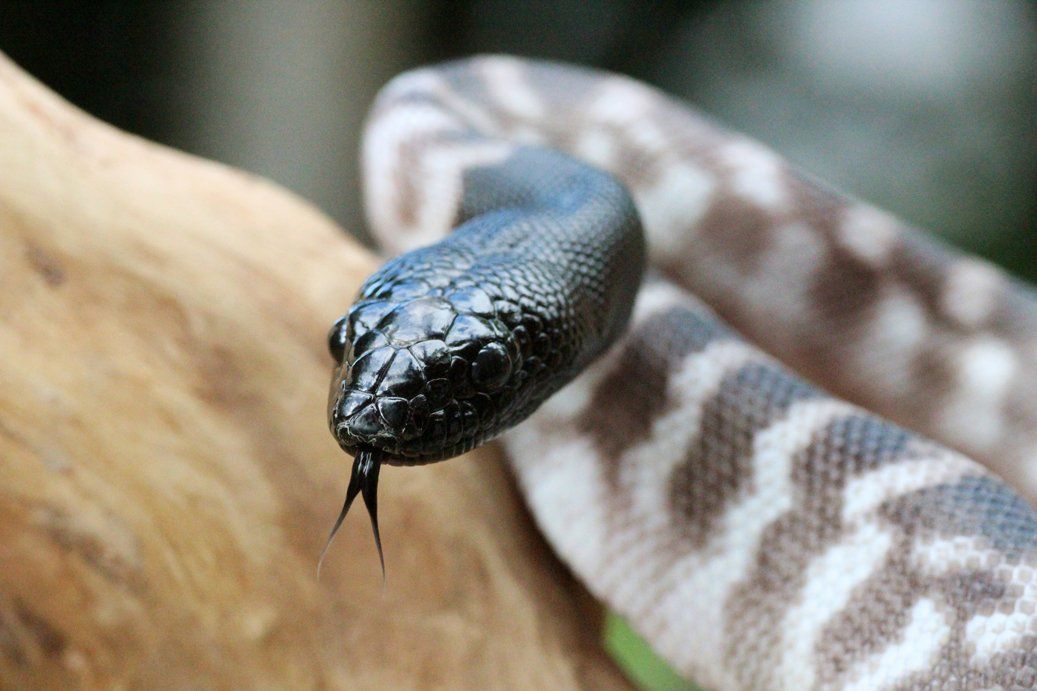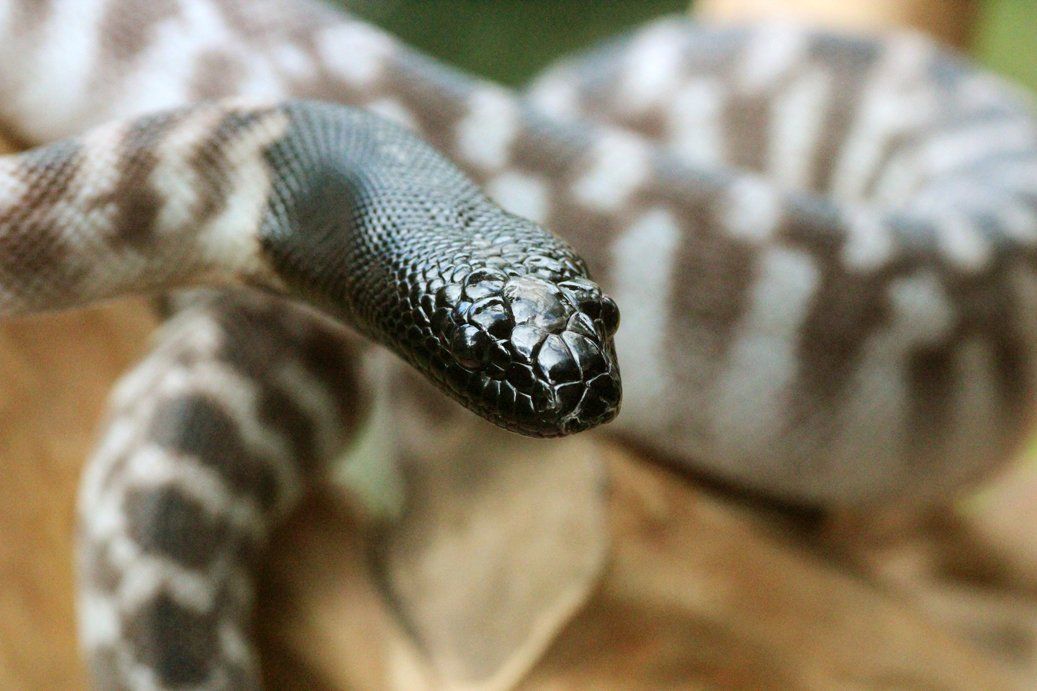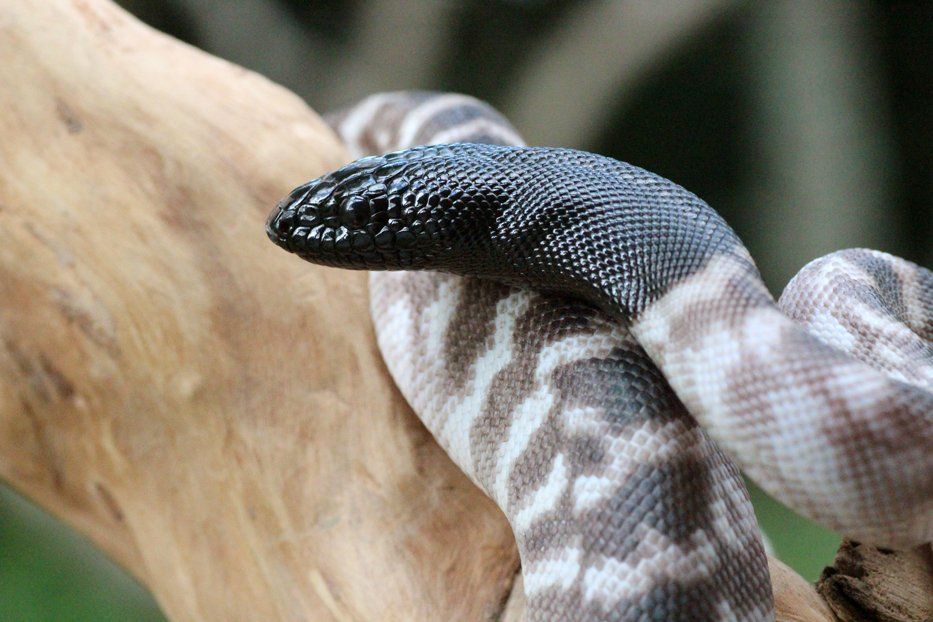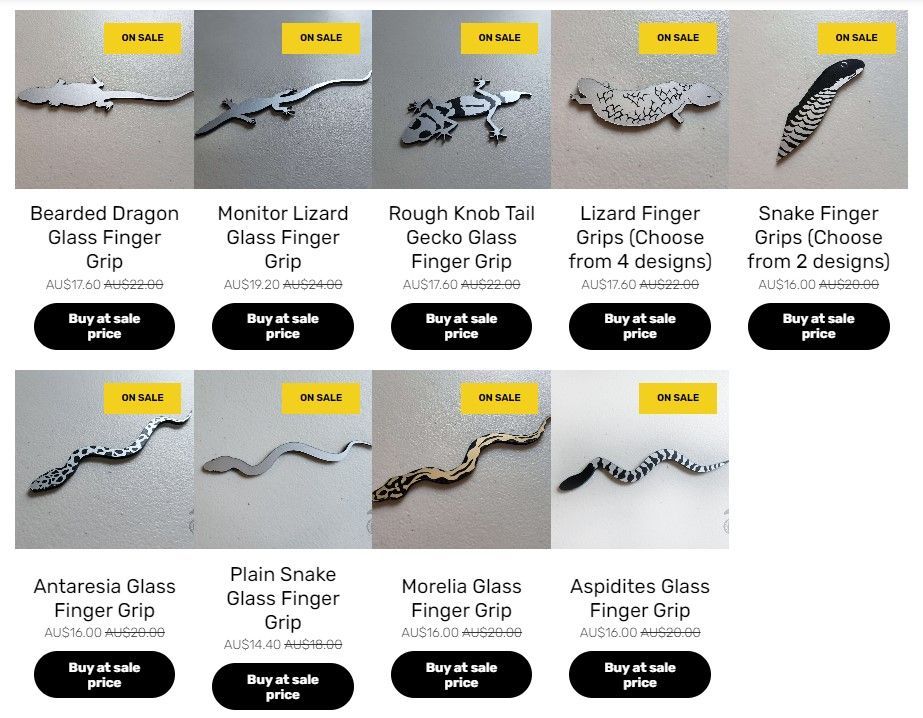When referring to snakes, they are actually venomous rather than poisonous, as they inject the toxin, rather than being swallowed or absorbed, like the toxin from a toad for example. But, no, Black Headed Pythons
are not venomous, though some people may think they look like they are!
Black headed pythons can make good pets for those who have the space! It is important to keep in mind that these snakes get BIG and chunky, and need plenty of space to move around. You also need to be comfortable handling a large, strong python. Other than that, provided you purchase an established feeding BHP, they generally love their food, handle well, and have some cute little personality quirks!
Black Headed Python sizes may vary depending on their locality, but can range from 1.5 to 3m in length.
Black headed pythons don’t appear to be sensitive to the venom from other snakes, and being reptile specialists, they can indeed consume venomous snakes!
Black headed pythons can live for 20-30 years if cared for appropriately in captivity, and provided they aren’t obese from overfeeding.
Black headed pythons are a terrestrial species, meaning they typically spend most of their time on the ground or low surfaces, though they may sometimes climb rocks, or certain tree’s etc. they are little clumsier than Morelia though!
In the wild black headed pythons are reptile specialists, meaning they eat other reptiles, including other snakes. Because this is difficult to achieve in captivity, they are typically fed mice, rats, quail, chickens or rabbits, depending on availability. But because of their natural wild diet, they can sometimes be diffiucult to encourage them to feed as hachlings, as we typically get them started on rodents- which is not their natural diet!
Black headed pythons are found in a wide distribution across the top of Australia.
Because black headed pythons are typically nocturnal, in addition to eating whole prey items, and therefore don’t require UVB lighting.
No, Aspidites sp. Including Black headed pythons don’t have heat sensing pits like Australia’s other python species.







